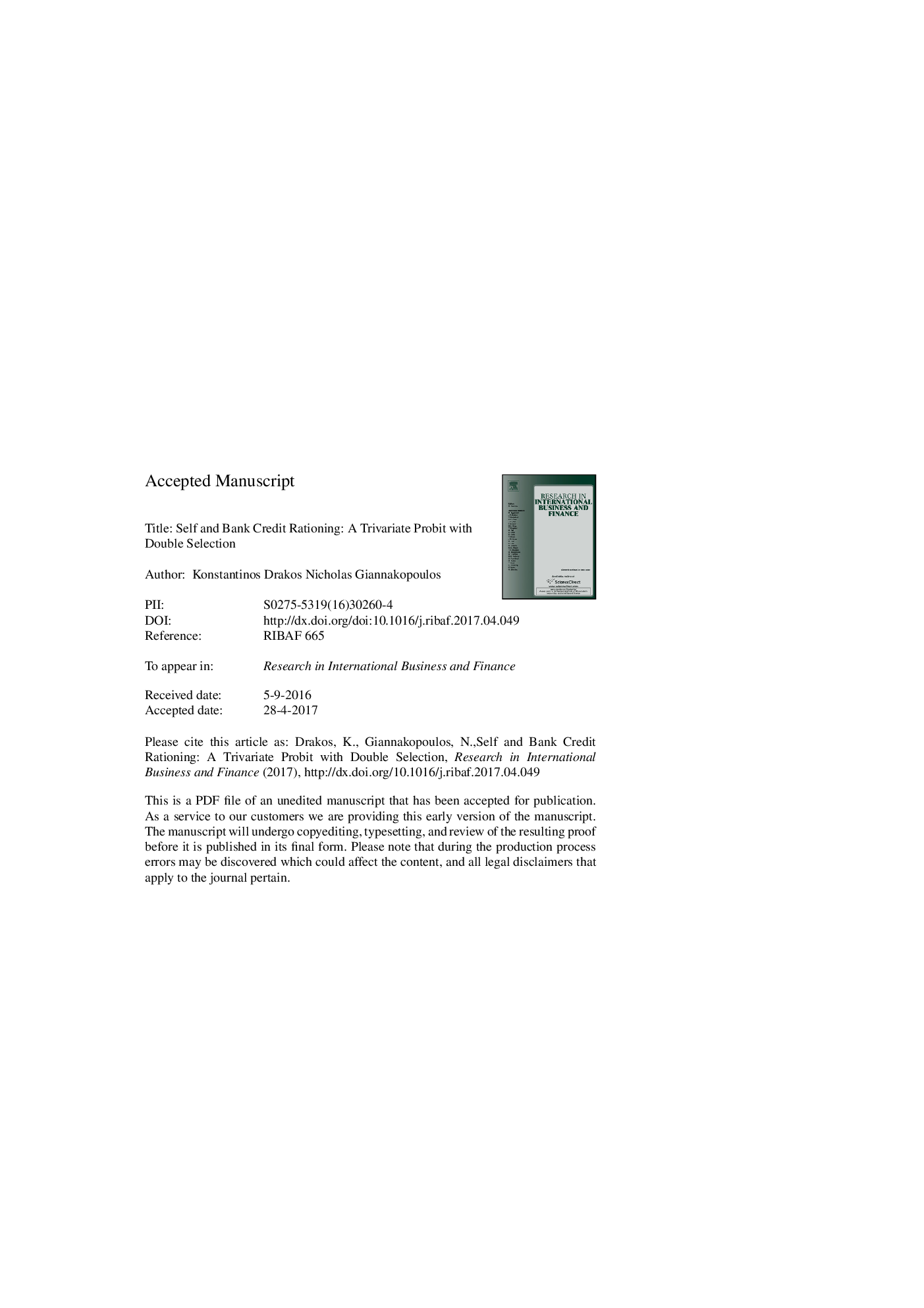| Article ID | Journal | Published Year | Pages | File Type |
|---|---|---|---|---|
| 7413843 | Research in International Business and Finance | 2018 | 31 Pages |
Abstract
Using a Trivariate Probit with Double Selection model on survey data for European SMEs, we model their complete credit market experiences. The first selection rule pertains to firms' needing a bank loan and the second to whether in-need firms apply for a bank loan. The outcome model, completing the trivariate structure, relates to whether firms who cleared the two selection thresholds are bank credit rationed. We document strong cross-equation interdependence, which if ignored would lead to severe estimation biases. The likelihoods of discouragement and bank credit rationing increase as firm size decreases, indicating a substantial size effect. Firm age has an equally strong effect, with the probabilities of discouragement and bank credit rationing decreasing for older firms. Discouragement is also affected by firm perception of banks' past and future willingness to provide credit, while bank credit rationing is higher for firms whose credit history has deteriorated. We also document ample country heterogeneity in all credit market outcomes, both of a transitory nature (captured by macroeconomic fundamentals) and of a permanent nature (captured by country fixed effects).
Related Topics
Social Sciences and Humanities
Business, Management and Accounting
Business and International Management
Authors
Konstantinos Drakos, Nicholas Giannakopoulos,
